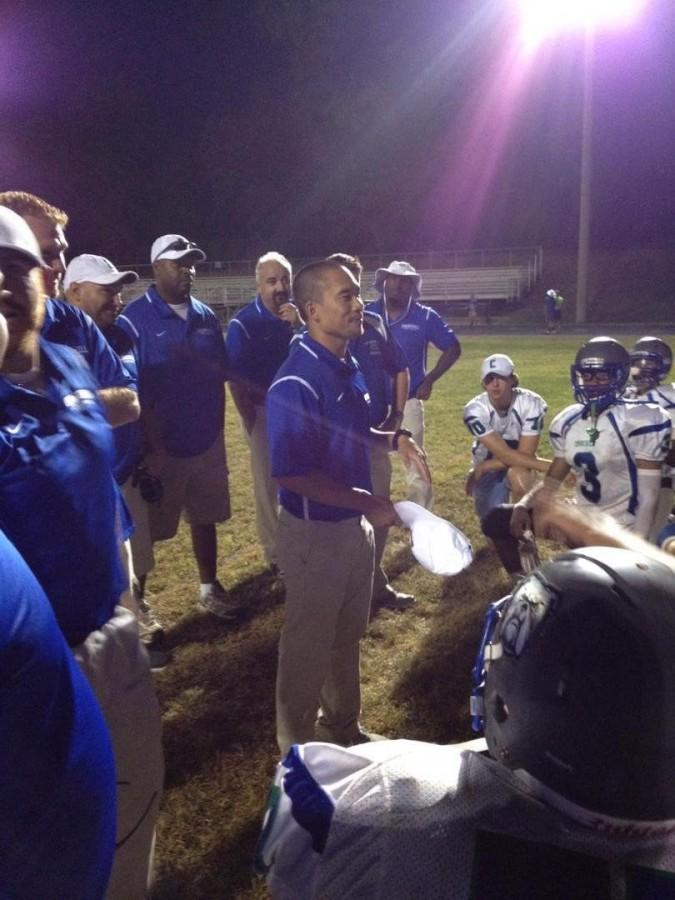Teacher Coaches Have Double the Responsibility
English teacher and football head coach Albert Song gives the team a pep talk before a game.
February 25, 2016
A football player hears the all too familiar “Ready, Set, Go!” from his teacher and instantly realizes he’s not at football practice. But when the student is in English class and his teacher happens to be his coach, it’s a different story.
Teachers coaches have the extra responsibility of managing their time between their students and players, and managing both isn’t as easy as X’s and O’s.
“It is a challenge to balance my work as AD and as a teacher,” Athletic Director and AP Comparative Government teacher Scott Rivinius said. “I do enjoy both roles so the time constraints are worth it.”
During the season, a teacher coach’s schedule becomes hectic with free time is hard to find. However, teachers who coach have to make sure they are fulfilling both jobs the best they can.
“I come to school at 7 a.m. and Monday through Wednesday I get home at 9:30 p.m.,” English teacher and head football coach Albert Song said. “On Friday game days I get home at midnight. It’s a long day.”
While managing both jobs can often be stressful, most teacher coaches agree that the extra work is worthwhile as long as their students are successful in the classroom and their players are working hard on the field.
“I do it because I hope I’m helping my players and students do what they want to do in life and, to me, that’s good enough,” Song said.
Using techniques from both jobs can help teachers become better coaches and coaches become better teachers. While most teachers’ teaching and coaching styles are not identical, each teacher coach definitely has some common strategies.
According to girls basketball coach and AP Psychology and Sociology teacher Kate Blanken, the relationships she has with her players and students are what make the two jobs similar.
“You [also] have to have a teaching style and a coaching style,” Blanken said.
Teachers who coach not only have a passion for coaching their athletes, but also for teaching their students. While all teachers realize coaching must come second to teaching, they all agree they would not do both if they didn’t love it.
According to Blanken, she knew she wanted to coach in middle school while playing basketball, but the passion for teaching came when she attended a program at Richard Montgomery High School, which was a behind-the-scenes experience of what teaching would actually be like.
“I coach because I love sports and I know what a positive impact it had on my life, and I would like to have the same impact [on my players] that I had,” Blanken said.
Earlier life experiences motivate many teachers to coach, and whether the experiences are positive or negative, each teacher’s individual road to coaching is unique.
“When my brother passed away, I realized life is short and what would I want to be doing if I were to die tomorrow,” Song said. “I went into coaching [because] I knew it was a big part of my life and my brother’s life.”
Some teacher coaches were inspired by influential people in their lives who made them want to have the same experience that they received when they were younger.
“I had some good role models as teachers and coaches and I try to emulate that in both roles,” swim and dive coach and calculus teacher Christopher Tappis said.
Teacher coaches take on the duties of being a mentor both inside the classroom and on the fields. They take on nearly double the responsibility to receive the double reward of changing a student’s life.


